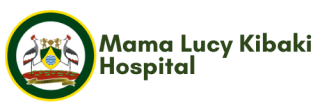Covid 19
Covid 19 updates.

Covid 19 updates.
The well-being of our patients, visitors, staff and communities remain our highest priorities. We are working closely with the Ministry of Health as well as other public and private institutions to care for our patients safely and address the public health concerns created by the presence of coronavirus (COVID-19) in our community.
We have instituted protocols to advise and evaluate those patients and employees with symptoms of an acute respiratory infection. We continue to evaluate the situation and update our protocols and information as outlined.
What are coronaviruses?
Coronaviruses are a large family of viruses that can cause illness in humans and animals. Human coronavirus illnesses are generally mild such as the common cold. However, some coronaviruses can cause severe diseases such as Severe Acute Respiratory Syndrome (SARS), which was identified in 2002, and Middle East Respiratory Syndrome (MERS), which was identified in 2012.
What is SARS-CoV-2? What is COVID-19?
Severe Acute Respiratory Syndrome Coronavirus-2 (SARS-CoV-2) is the name
given to the 2019 novel coronavirus. COVID-19 is the name given to the disease associated with the virus.
SARS-CoV-2 is a new strain of coronavirus that has not been previously identified in humans and was first identified in Wuhan, Hubei Province, China in December 2019.
What are the symptoms of COVID-19?
Symptoms include fever, sore throat, cough and/or shortness of breath, like the symptoms of the common cold. Most people (about 80%) recover from this disease without needing special treatment.
Those who are older and those with other medical problems are more likely to
develop serious illness, which can include: difficulty breathing, pneumonia.
From what we know now about COVID-19, the symptoms can occur between 2 and
14 days from exposure to the virus.
What patients are at the highest risk for severe COVID-19?
Older individuals and people with chronic medical conditions, especially related to cardiovascular disease, chronic respiratory illnesses, diabetes, and hypertension appear to be at the highest risk.
The proportion of individuals who get COVID-19 who develop the severe disease is still under investigation but is under 20% of diagnosed cases.
Can COVID-19 be transmitted from person to person?
Yes, COVID-19 can be spread from person to person. This can happen when a person comes into contact with the respiratory secretions of an infected person, for example through coughing or sneezing.
Spread of this coronavirus from person to person is usually between close contacts. Close contacts are those people who have been face-to-face with a person infected with the virus for at least 15 minutes or been in the same closed space for at least 2 hours with an infected person.
What should I do if I have symptoms?
If you have traveled or transited through any country with widespread local transmission of the disease in the past 14 days AND have respiratory symptoms such as a sore throat, cough, shortness of breath or fever, please call your nearest health facility and inform them of your symptoms and travel history and get further advice on whether you need to be evaluated in a hospital or can continue to care for yourself at home.
If you are in need of urgent medical assistance or if your symptoms are not improving, call the hospital you wish to seek treatment at and tell them that you have been to a country with widespread local transmission and are unwell.
What is the treatment for COVID-19?
There is no specific treatment for COVID-19 and in most cases, symptoms will
resolve on their own.
Supportive and symptomatic care is important particularly for those with severe symptoms of COVID-19.
Is there a vaccine?
There are no available vaccines for COVID-19 at this time.
How is COVID-19 diagnosed?
The current testing available for COVID-19 includes obtaining nose and throat swabs or sputum.
Testing will only be done for patients with risk factors of being in close contact with positive cases of COVID-19.
These are then sent to the laboratory for testing. The laboratory can also test for other common respiratory viruses (such as influenza).
Is the diagnostic test for COVID-19 available at Mama Lucy Hospital?
At this time, testing is only available through the public health laboratories for people who are experiencing symptoms and meet case definition criteria defined by the Ministry of Health.
We are currently looking into alternative ways to screen and test for COVID-19. We will let you know if/when there are new developments.
What should I do if I come into contact with a person with confirmed COVID-19 infection?
If you have been in contact with someone in the previous 14 days who has since been confirmed to have COVID-19, you must contact your nearest health facility.
You may also be contacted by public health unit staff if you have been found to be a close contact of a patient with COVID-19. You will be asked to stay isolated for 14 days since you last had contact with the infected person, and to report any symptoms to the public health unit.
How can I protect myself and my family?
The best way to protect yourself and others is to practice good hygiene by:
Should I wear a face mask?
The use of facemasks for the general public to prevent the risk of contracting COVID-19 is not recommended unless you are caring for and coming in close contact with a patient with confirmed COVID-19 at your place of work or home.
How can I protect myself?
Anyone in the home with respiratory illness should be cared for in a single room, where practical. Isolating sick residents in single rooms reduces the risk of transmission to others.
Follow the below steps to reduce the chances of spreading infections at home:
Mama Lucy Kibaki Hospital has expanded health services in Kenya, not only to people in the Eastern part of Nairobi County in Kenya, but also to all Kenyans from all over.
Kangundo Road Umoja 2 | Embakasi West Nairobi Kenya.
0208022676
info@mamalucykibakihospital.or.ke
